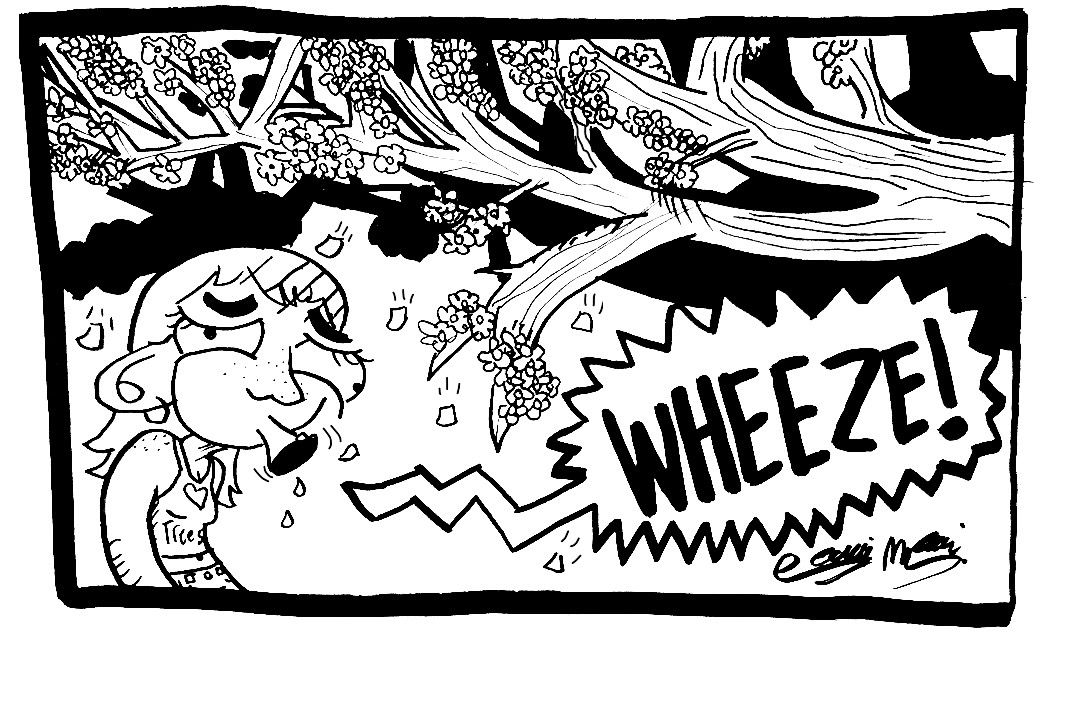The day before the start of the second semester of my freshman year, it snowed heavily. Having grown up in California, I had never experienced wind or snow at this level, and it was a new and exciting environment for me. There was an immediacy to the weather, a biting cold that necessitated certain clothes and shoes. As a freshman, the snow felt like one more way in which college was proving to be a novel experience.
I lived on the Mount Vernon Campus at the time, but my roommates and I were in Foggy Bottom when we found out that all the Vern Express shuttles were halted because of the snow. Us Vernies were herded out of the Vex and left to our own devices to get back to the safety of our residence halls. My roommates and I decided it was best we walked, reasoning that Ubers, like the Vex’s, also did not have the desire nor the capacity to drive uphill in icy conditions to drop us off at the Vern.
Though I was excited by the atmosphere of the snow, and our adventurous walk home, I also happened to be insanely depressed around this time. So when we got home from the walk, I kicked my roommate out of the room, turned off the lights, burrowed in my bed and cried. But what is most memorable from that day is not the next two hours of feeling like I was drowning in my own tears, nor was it the feeling of not being able to get out of bed to make myself some dinner. What is most memorable from that day is hearing the cries of pure joy my roommates let out just beyond my closed door when we all got a text saying that classes would be canceled the next day due to snow. That feeling of joy is emblazoned in my mind, and I associate it with every snow day that has come thereafter.
In pandemic times, the University has made it easier to capture lectures and hold discussions over Blackboard or Zoom. This has been helpful in continuing what needs to get done throughout the pandemic, but I worry that online learning will continue to bleed into our lives in ways it doesn’t have to. The pandemic’s side effects should not begin a culture of prioritizing work regardless of what is happening in the world. Rather, we should preserve and continue to embrace the few times that the outside world penetrates our insular lives.
Every time it snows, I look forward to my Instagram feed looking the same shade of white – my friends posting pictures of their day on the soccer field on the Vern to play in the snow or their venture out to see the newly blanketed National Mall. But if snow days are overruled by a simple shift to online learning for a day until the snow clears, this pure, elemental joy that we all share will evaporate.
For professors and administrators, shifting from in-person to online learning to account for the weather is forgivably an easy mistake to make. After all, the temptation of not missing a day’s worth of work on the syllabus, or avoiding having to coordinate makeup days, is difficult not to give in to. But for students, a snow day is sacred. It means taking a break from staring at our laptops, it means that school isn’t everything.
A snow day puts life in perspective for students, allowing us to remember that we’re not bots doomed to searching for keywords on JSTOR until the end of our college days. Snow days provide us the opportunity to remember that we’re human and that our lives have space for the serendipitous prospect of enjoying a day out with friends in a fairly rare, snowy environment.
A snow day has the possibility to mean many things. It can mean an extra day to fold the laundry you haven’t been able to get around to, a day to enjoy streets with fewer cars and more people enjoying their new, snowy surroundings or maybe just a day to call all the friends whose schedules never align with yours and hang out. What a snow day shouldn’t mean is another day of school a la Zoom instead of in person. For students, a snow day should be restful, restorative and joyful.
Shreeya Aranake, a senior majoring in history, is the contributing opinions editor.


